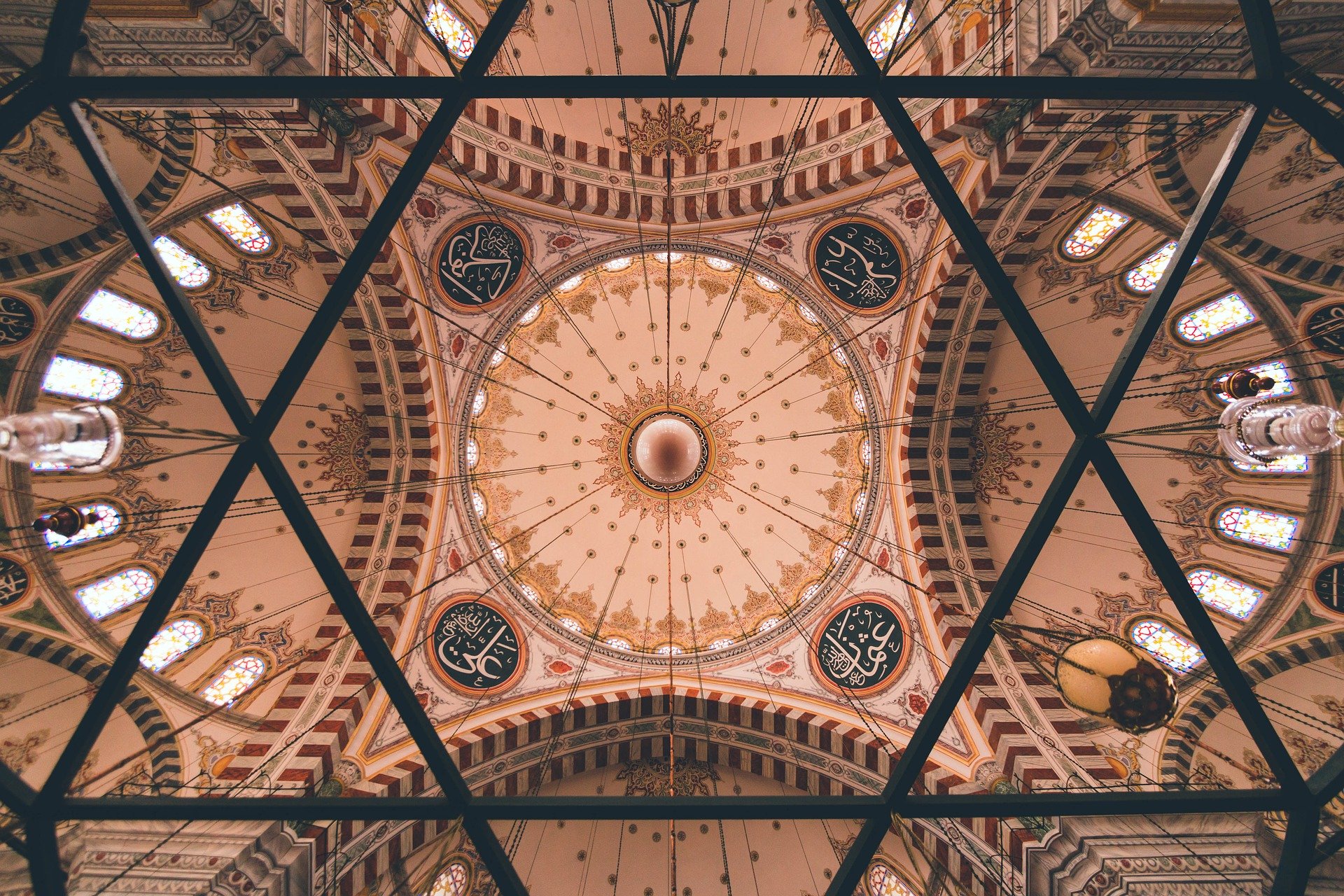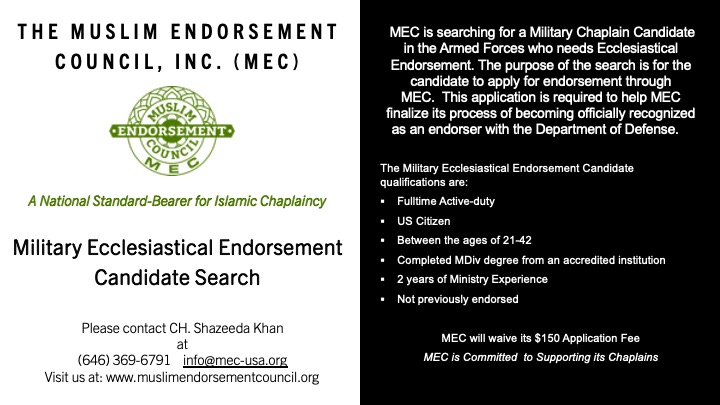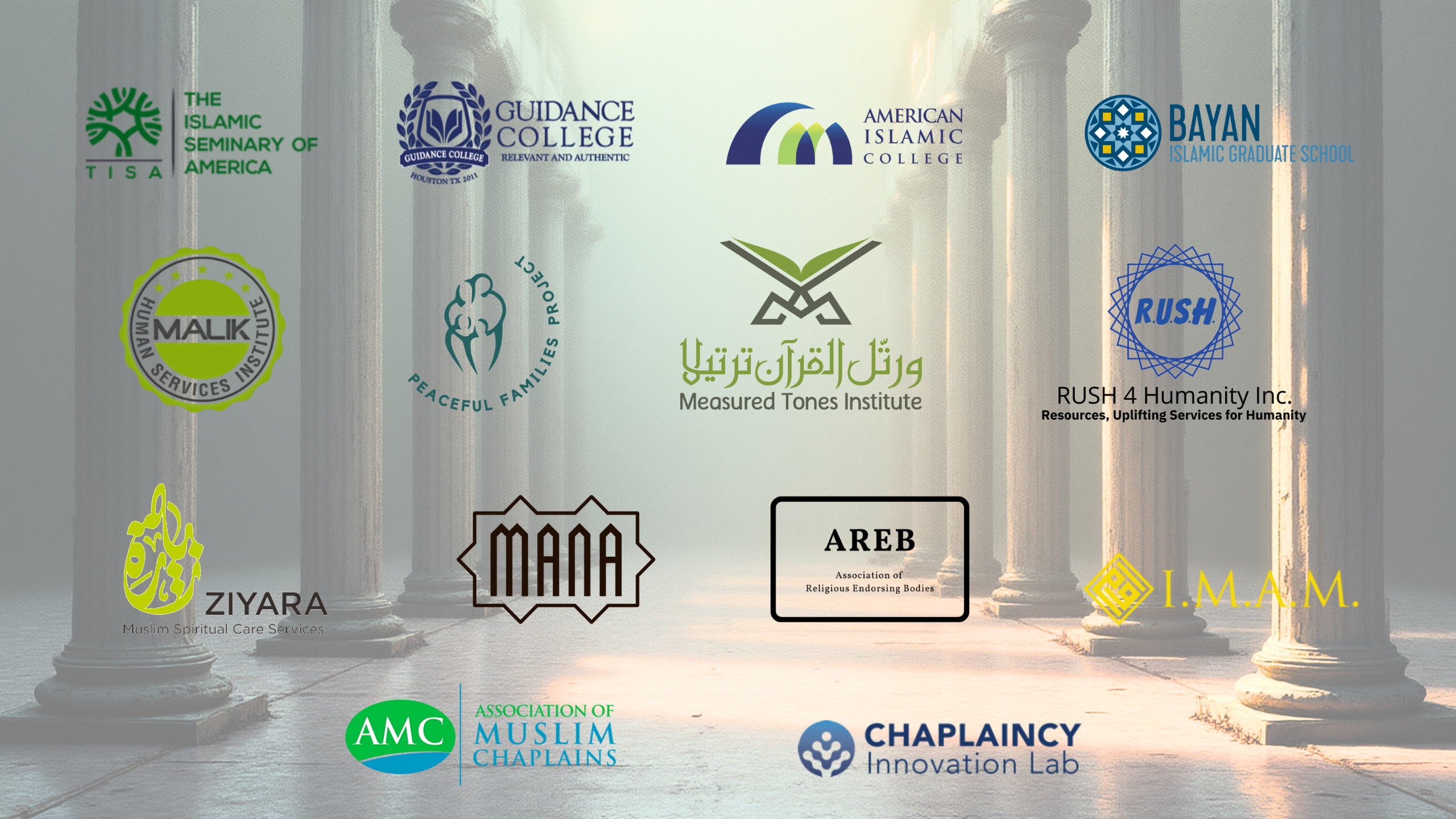Islamic Chaplaincy: is the field of spiritual care and counseling utilizing pastoral care guidelines and methodologies from an Islamic paradigm.


Islamic Chaplaincy: is the field of spiritual care and counseling utilizing pastoral care guidelines and methodologies from an Islamic paradigm.
Muslim Chaplain: A Muslim chaplain is a person who serves in public and private settings such as the community, corrections, education, healthcare, and the military from the Quranic and Prophetic paradigm, and caters to the unique institutional context to facilitate the provision of Islamic worship and other services such as:
An endorsement by MEC is a declaration and affirmation of a Chaplain’s good standing with the American Muslim community and vouches for the disposition, character and competencies of the man or woman serving in the role of a Muslim Chaplain.
MEC was founded in 2011 as a body to serve the Islamic community by:
• attracting, evaluating, endorsing, and supporting Muslim men and women in chaplaincy
• providing advisement on religious matters to institutions
• being the standard-bearer for the endorsement of Muslim Chaplains
We ensure that endorsed chaplains:
• have a working knowledge of the Qur’an and Sunnah
• follow the prophetic model of mercy to all
• do no harm
• bring benefit to the community and
• preserve Islam
Muslim Chaplains work in different institutional settings. These setting can be classified into 5 categories as follows:
UNIQUE CONCERNS OF PRISON/CORRECTIONS CHAPLAINS
Some of the concerns concerning prison chaplains include:
• Securing ample and authentic Islamic Literature for the Muslim population served (i.e. Qurans, Ahadith, various books of seerah and fiqh)
• Recruiting and retaining qualified daees to conduct Jumuah and various halaqat to groups of Muslims with diverse Islamic understanding
• Creating a medium for training daees who are willing to conduct Islamic services to incarcerated Muslim populations
• Forming coalitions amongst community Masaajid, local and national Islamic organizations who are willing and committed to support Islamic chaplaincy, the services provided by Muslim chaplains, and the challenges they face
• The lack of a community resource who can help Muslims in their transition when they discharge from prison
UNIQUE CONCERNS OF MILITARY CHAPLAINS
The United States of America Armed Forces maintain chaplaincies to accommodate religious needs, to provide religious and pastoral care, and to advise commanders on the complexities of religion regarding its personnel and mission, as appropriate. As military members, chaplains are uniquely positioned to assist Service members, their families, and other authorized personnel with the challenges of military service as advocates of religious, moral, and spiritual well-being and resiliency. Military chaplains are protected personnel in their function and capacity as ministers of religion. Service regulations further prohibit chaplains from bearing arms and classify chaplains as noncombatants.
UNIQUE CONCERN OF COMMUNITY CHAPLAINS
Chaplains provide services that promote overall spiritual community wellness. The category includes those who may serve in institutions like Police and Fire Departments or those that are not connected to any institution at all. Normally, they do the following:
• Assist those in need in their institutions or their immediate geographical areas
• Do crisis counseling and support as needed
• Encourage neighbors to serve their neighbors.
• Provide information and access to community resources,
• Supports religious leadership when needed
• Assist Individuals and families with death/dying issues including connections to needed services
• Provide workshops/support sessions to help individual/families cope with situations of illness, death and / or dying
• Visit patients in the hospital and/or family members at home
Community Chaplains can find themselves assisting those outsiders of their religious community. In doing so, Muslim chaplains would help the person access their own belief system for their empowerment but never compromising their own beliefs and practices. In addition, sometimes Community chaplains are trained as disaster chaplains and will answer the call to help in other communities, Islamic or otherwise. Often, Community chaplains have gone through community training or CPE to increase their communication skills and awareness
UNIQUE CONCERN OF UNIVERSITY CHAPLAINS
Religious Services and Retreats facilitates student leadership of services and holidays (e.g. Jum’ah Prayers, and Ramadan,) provides reflection and educational content, supports coordination of major festival celebrations and visits to mosques and events off campus. Pastoral Care and Counseling: Provides religious and personal guidance to students and serves as a regular pastoral presence for the college community through programming. Interfaith: Collaborates with other chaplains and staff on interfaith programs and services, is present to other religious communities on campus and to the broader campus community, offers words of wisdom at university events, and advocates for interests of the campus communities as needed. Community-Building: Cultivates a vibrant and supportive campus community; hosts outreach and community building programs; advises students, in their programming and development as leaders, attending student group meetings and events as needed and providing mentoring and team development opportunities.
UNIQUE CONCERN OF HOSPITAL CHAPLAINS
Muslim Hospital Chaplains are Muslims with a desire to provide spiritual and religious support to those in the hospital though spiritual exploration and guidance. They provide services that promote overall spiritual wellness and facilitate worship. It is common for the Muslim chaplain to service the Muslim hospital patients and their families, and staff. However, they are not limited to Muslims only. The Muslim hospital chaplain sees the individual as a human being and tries to meet those they assist on their level and with a non-judgmental approach. They are trained to serve all persons who are spiritually suffering and in need of spiritual support. The Muslim hospital chaplain is usually required to have a background in spiritual care / theology, counseling, and patient interaction. Most have been trained in clinical pastoral education (CPE). They may have a specialty such as emergency room, psychiatry, hospice, or different areas of the hospital. For the most part, the hospital chaplain can offer spiritual comfort in all patient care areas
Our mission is to provide a structure and process for the official endorsement and support of Muslim chaplains based on Islamic and pastoral principles and to establish a national standard for such endorsement in order to develop consistency and integrity in the field of Islamic chaplaincy
Helping to bring Islam and the perspectives, values, practices of the diverse American Muslim community into the public space in service to the society.



MEC collaborates and works with other organizations where it identifies that such work and collaboration is in the greater interest of Islamic chaplaincy. The use of the word or term “partner or partners” on this Web Site does not indicate or imply the existence of any agency relationship or any legal or fiduciary relationship of any kind unless otherwise specified. Further, MEC does not necessarily endorse, support, certify, sanction, encourage, verify, or agree with all the comments, opinions, or statements of such organizations whose names and logos are posted on the website.